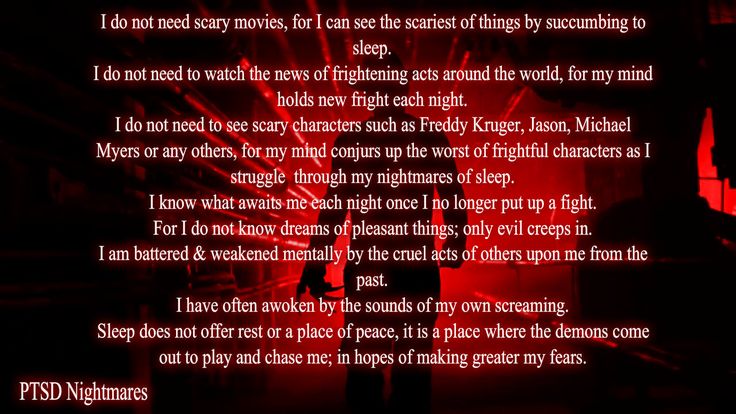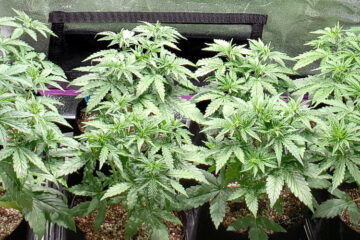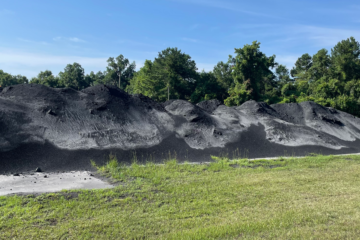“It is just a flesh wound
Here’s your rifle
Send it approx 800 Yards

Elevation, Windage…
Crawling up the beaches now!
Sir, I think he’s bleeding’ out
And some other things you just can’t speak about”
When you go through something emotionally disturbing, it can often develop into a traumatic life event. PTSD (Post-Traumatic Stress Disorder) is a mental health condition usually developed as a result of combat, sexual assault, a car accident, or a natural disaster. Other important life events to the victim can also cause life-long PTSD.
Living with PTSD can make a person feel constantly wary, have upsetting flashbacks, develop seemingly irrational fears, and feel depressed for long periods of time. Each person’s experience is different but here are some side effects and common features of PTSD that can help the victim and the people around them understand the condition more.
Hyper-vigilance

Someone who is hyper-vigilant is someone who is consistently on edge. They are generally “jumpy” or easy to scare. I have this disorder. I seldom relax I am easily Irritated and always on the lookout. My Family and friends have noticed this in me.
Hyper-vigilance may also exhibit itself in these ways:
- Irregular sleeping patterns
- Difficulty concentrating
- They constantly feel that they and/or their loved ones are in danger and that feeling doesn’t go away
- Always feel as if I am being watched from afar, or close.
Avoidance and Numbing

People who have been deeply traumatized by a specific event or person often try to avoid situations that may remind them what happened and/or trigger flashbacks. This avoidance may manifest in them purposely avoiding crowded areas or busy open places, staying away from certain types of people, or anyone even remotely resembling their previous attacker, not wanting to drive a car or use public transportation and some may not even want to leave home at all.
Sometimes sufferers will intentionally keep themselves constantly busy in an effort to keep their minds distracted and keep any troublesome thoughts at bay. It is also common to fall victim to different vices such as drugs or alcohol to try to evade the manifestations of PTSD.
Most victims prefer to feel detached from their bodies, thoughts, and feelings if it means being able to forget their past.
Nightmares and Insomnia

It is typical for people with PTSD and Anxiety Disorders to have problems sleeping, they either avoid sleep out of fear that they’ll be defenseless to potential causes of harm while sleeping or try to sleep but cannot initiate rest due to being so high-strung.
Some people with PTSD/Anxiety also have graphic nightmares related to their past trauma. These nightmares can make them feel as if they are reliving their painful past in a heightened environment which destroys their sleep quality. Or of course the amazing Human Brain can come up with new scenarios for ones enjoyment!
Not feeling rested due to not getting enough quality sleep can reshape somebody’s overall health, leaving them constantly exhausted. They will be unable to perform even the most mundane of activities and may elicit feelings of hopelessness.
CBD for PTSD and Anxiety for Veterans

The Department of Veteran Affairs published in 2016 that 66,000 veterans received treatment for opioid addiction. Cannabidoil (CBD) has been proven to help alleviate pain, diminish inflammation, enhance one’s mood, and is an efficient solution for a variety of other illnesses, both physical and mental.
There is a high probability that CBD can be used as an alternative for opioids for military veterans with PTSD and related depressive symptoms. War veterans who have been taking CBD routinely have already shown positive results for these indications.
A medical paper published in 2015 with the title ‘Cannabidiol as a Potential Treatment for Anxiety Disorders’ examined the feasibility of CBD in assisting with erratic and unstable moments of PTSD. The study determined that the use of CBD as a most effective option in helping people deal with traumatic events.
When CBD is used within an hour of victims reliving the experience through flashbacks or memory association, it significantly decreases the adverse effects of the disorder.
This is not to say that CBD is a cure-all solution or remedy to PTSD. Mental health conditions are complex and each individual deals with trauma differently. CBD won’t make the symptoms of PTSD go away but with regular CBD use, it can provide comfort and enable people to manage the symptoms PTSD with more control.
Hemp is fully legal in Thailand and is defined by the government as having less than 0.3% THC content. With less than 0.3% THC, this is Hemp along with the correct phytocannabinoid profile.
Dosage
- Adults take one full dropper (0.5mL) up to two times daily.
- Take daily, morning, and/or evening, and adjust your regimen as needed for the best results for you.
- Apply oil directly under the tongue, being careful not to touch your mouth to the dropper, and let rest under your tongue for thirty seconds before swallowing.



0 Comments